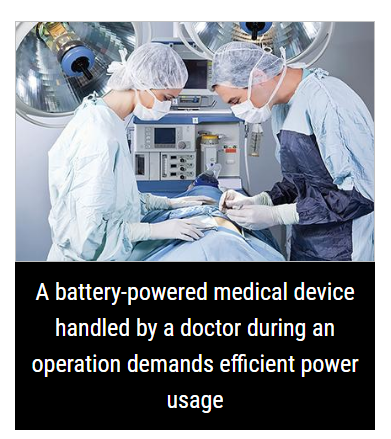Welcome to Sino Bearings web
24x7 HOTLINE:+86-28-81454188

 NEWS
NEWS
Clémence Muron on optimising compact linear motion applications with mini motors
To achieve maximum performance from a miniature linear motion application, it’s vital to make sure the motor’s specification meets the requirements. Efficiency, high power, optimised dimensions and acceleration are among the criteria for selection to optimise demanding lead screw applications.
Requirements for linear motion, miniature applications range from filling syringes through to medical devices, or robotic applications used in the operating theatre. The first consideration for a design engineer is the method used to transfer the rotary motion of a miniature motor into linear motion. The most common way of achieving this is by mounting a screw and nut system on the motor shaft. It operates on rolling contact between the nut and a screw, which can provide low friction, good efficiency and high load capability. The disadvantage however is the cost and the time to design such a solution, especially for applications which don’t require high load handling.
A more cost-effective means of achieving linear motion can be reached with a standard linear motorised solution by choosing a motor with an integrated lead screw. In particular, a digital linear actuator (or DLA) utilises a can stack stepper motor combined with a screw. Inherent with stepper technology, the motor controls its own positioning and is both an accurate and cost-effective solution, doing away with the requirement for an additional feedback system. Resolution can be managed in full, half or micro steps. With a special optimised ball bearing assembly, the axial play can even be eliminated, improving positioning accuracy as well as repeatability of motion. In addition, with stepper technology, the motor has a detent torque. As a result, it can hold its position when the power is removed. The nut can be over-moulded in the rotor assembly with special material, minimising friction and consequently increasing efficiency and lifetime.
For a high-optimised linear solution, a customised package can deliver the maximal performance and characteristics most suited to the application if the motorised solution is well designed. Taking the screw section, this could include considerations over dimensions, pitch, material, ball or lead screw.
Regarding the miniature motor, the can stack stepper motor can be replaced with various choices dependent on requirement. As an example, a low inertia disc magnet stepper motor ensures the highest acceleration with the benefit of the stepper technology, providing ease of control, positioning capability and detent torque. Alternatively, a brushless DC motor maximises power density. For applications which demand energy efficiency, such as battery powered devices, a coreless brush DC motor can be advantageous. Control devices can also be added, such as an encoder for high-resolution positioning feedback or a gearbox for optimised torque performance.
Designing the optimal motor assembly means understanding the application’s power demand as well as the motor’s power generation. The desired output force and linear speed vary depending on the application’s requirements. Power is generated by the motor’s torque and rotational speed, and it can be calculated by using the expected output power and by taking into account motor efficiency and the lead screw parameter, including the efficiency and pitch.
Real-world Examples
Now, let’s take an example with the development of a laboratory medical device for low volume liquid transfer, a single motor package limited to a maximum diameter of 20mm controls a multi-pipette channel. The filling stage must take less than 2.5 seconds and the pipettes then travel 50mm in 4 seconds where they are emptied in 30 sub-steps. The application requires a high-resolution system and a good repeatability to consistently provide the same amount of liquid for each sub-step.
For this kind of application, a standard digital linear motor with a lead screw will usually fulfil requirements with no special development necessary, beneficial to keep costs down. A can stack stepper motor enables pipette filling control as a result of the multi-step resolution over liquid delivery into sub-volumes, and thanks to an optimised ball bearing assembly, the axial play is removed, ensuring high repeatability.
Battery-powered Medical Device
In an alternative application, a recent example of a battery-powered medical device handled by a doctor during an operation demands efficient power usage. It also has to be lightweight and compact, requiring a solution with a maximum diameter of just 13mm and for this application, coreless brush DC motors ensure high efficiency. For size optimisation, the mini motor should also be paired with a gearbox. For the geared motor selection, the engineer will take in account the duty cycle and in this case the medical device will be used over several minutes in continuous duty. To determine the required input power (torque and speed) generated by the motor, some calculations are necessary. First the conversion of the linear motion (force and linear speed) requested by the application into rotative motion (torque and rotational speed). This depends on the lead screw parameters (pitch and efficiency). To know the necessary power at the motor level, you will need to consider the ratio and efficiency of the gearbox. To ensure that the motor is powerful enough in continuous use, the required motor torque should be lower than the rated torque specified by the manufacturer. When the motor and gearbox demands have been ascertained, the power requirement and efficiency of the solution can be calculated.
Supporting linear motion application design, Portescap can support engineers with standard and customised solutions. Defining the technical requirements for the application, it’s vital that the miniature motor is correctly specified and sized to ensure optimum integration and consequently, the application’s maximum performance.